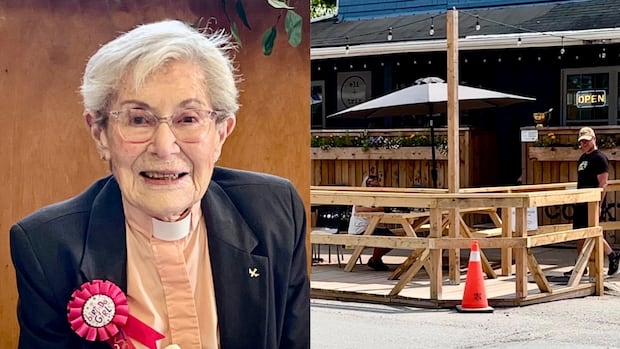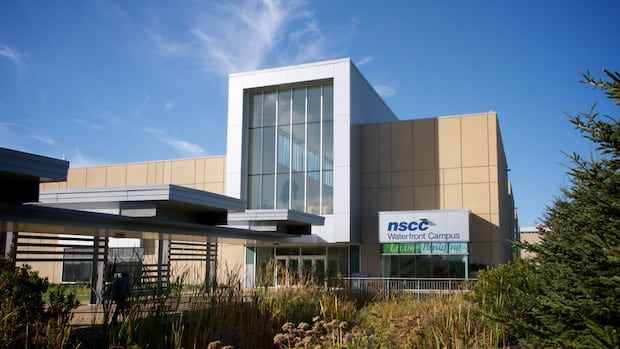Homeowners, groups grapple with administrative avalanche after wildfire in Halifax

It’s hard to imagine when Tricia Murray-d’Eon is asleep.
She recently lost her home to a wildfire in the Halifax area, works full-time, has an eight-year-old daughter, and helps other residents like herself get support.
“None of us have been in this boat before,” said Murray-d’Eon, co-chair of the Highland Park Ratepayers Association. “I have no idea what I’m doing.
“It almost felt insurmountable when this first started.”
Despite her own hardships, Murray-d’Eon and a small group of Highland Park residents have worked to help members of their community navigate the relief provided in the aftermath of a wildfire that destroyed 150 homes in Hammonds Plains and Upper Tantallon. destroyed.
Homeowners say they are confused, frustrated and even humiliated by the overwhelming process of accessing support, while community groups grapple with an avalanche of administrative work associated with providing it.
How funds are channeled to families
Nine local community organizations are receiving funding allocations from United Way Halifax, which raised $1.4 million to help those affected by the wildfire.
The organization’s mandate is to ensure that people have food security and do not fall into poverty.
It is legally not possible to provide financing directly to private individuals. It manages funds to community organizations as required by the Canada Revenue Agency. It is then up to those organizations to decide how to use the money.
Meanwhile, the Canadian Red Cross has raised more than $5.4 million to provide immediate relief to families and individuals who have lost their homes or suffered significant damage. A social worker will work directly with those families.
But the distinction between the fundraising efforts and information on how to access support was not clear to homeowners like Jody Stuart, a father of three who lost his home in Yankeetown.
Stuart said he spends hours every day answering emails and driving to different places to pick up gift cards of between $50 and $100 from the various community organizations, in addition to communicating with his insurance adjuster and working as a carpenter and contractor.
He said that administrative work does not come naturally to him.
“I could really use a secretary or an assistant,” says Stuart, who lives in an RV on his neighbor’s property while his house and garage are being rebuilt.
“I’m really thinking about having someone perform for me for stuff like that because I’m trying to get my life back on track so I can work, and time isn’t on my side.”
Stuart said he appreciates the help being offered, but thinks organizations should offer the option to mail gift cards, and perhaps try to organize themselves so that help can be offered in a central location.
He said he feels uncomfortable asking for help and was embarrassed to stand in lines of people.
“It’s a weird feeling I get when I take these gift cards,” he said. “That feeling gets very overwhelming. So that’s why I avoided it quite a bit.”

Murray-d’Eon feels the same way. She has declined much of the support offered simply because the process of accessing it is time consuming and humiliating.
“It’s very uncomfortable asking for financial support,” says Murray-d’Eon, who now lives in Kingswood.
“We live in a middle-class neighborhood. We own our house. We pay our bills. We’re in pretty good financial shape. But now suddenly something huge happens and all of a sudden we’re asking for grocery shopping support.”
Still, she’s the co-leader of a group helping people in Highland Park, a subdivision hard hit by the wildfire that started on May 28.
She creates spreadsheets to keep track of all affected residents, tries to more organically find people who may not be on Facebook or the Internet, and communicates with all of them to make sure they stay informed – all while working full time as a job coach. communicating with builders and insurance experts and taking her daughter to a daily swim practice.
Murray-d’Eon noted that all community organizations do their best with the limited resources they have, and many have never faced the consequences of an emergency of this magnitude.
‘We feel through it’
Caroline Gallop of the Freedom Kitchen and Closet in Lower Sackville, NS, single-handedly manages the funds administered to that church organization.
It meant hours of daily emailing and even putting several thousand dollars on her personal credit card to buy gift cards so homeowners could get help faster.
She’s trying to communicate more with the other groups so they can get better organized and come together when support is provided so homeowners don’t have to drive to multiple locations. She also offers to send gift cards.
“It’s the first time this community, I think, has faced this kind of situation, so I think we’re working our way through and trying to do the best we can,” Gallop said.
“Most people are extremely grateful, but they have so much to process.”
Gallop added that United Way Halifax’s small staff were extremely helpful and compassionate.
Sue LaPierre, director of social impact strategy at United Way Halifax, said that while the community organizations manage the funds, she encouraged people who struggle to access the support offered to reach out.
“We really want to make it easy,” she said.
“I think one of the benefits of being a smaller organization of 20 people is that we can be quite nimble and respond to the community in near real time.”



